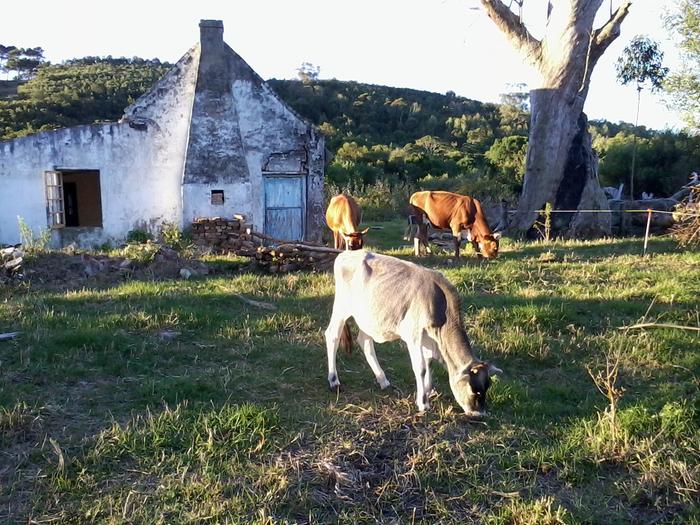I'm not one of the most knowledgeable people here, but I would say, in terms of small livestock, to get ducks. Looking at the average rainfall of Mason county, you get a lot of rain, even more than my 50 inches. Ducks love water, they are more disease resistant, many breeds lay about 300 eggs a year, and their eggs are twice as large as chickens. They also are not nearly as noisy, and they lay for more years than chickens do. They also forage well, eat your likely-ever-present slugs, and don't tear up your garden like chickens do. Some great duck breeds for eggs are Golden Layer 300s, Anconas, Khaki Campbells, and Indian Runners. We love our ducks! They do poop quite a bit, but that can be managed, and is good fertilizer.
The first thing, I think, for you to do when setting up your homestead is to reaaaaaally get a feel of your environment and climate. Watch where the sun goes. Where is it shady? Where is it hot? Where does the fog and frost settle? Where are the wet/wetland areas (look for rushes and sedges and swamp cabbage)?
I think, if you want to get the ball rolling in your garden, try and find places to plant your fruit trees. Those are the first things you want going, because they take so long to produce. For affordable trees, you can check with local county conservation districts for sales. I didn't see one in Mason County (though they apparently had one in 2010). King and Snohomish Counties have them (here's King County's website:
http://www.kingcd.org/pro_native.htm) in the spring, and you can get some pretty affordable bareroot native plants there, many of which are edible, such as mountain huckleberry, thimbleberry, saskatoon/service berry, dogwoods, salal, oregon grape, and hazelnuts. I wish I knew more places to get affordable fruit trees, but I like buying local rather than paying for shipping from places like Raintree (
http://www.raintreenursery.com/) and Burnt Ridge (
http://www.burntridgenursery.com). Those are both large nurseries that sell direct and are in our climate.
As for native plant identification, here's Mason County's native plant list:
https://www.masoncd.org/native-plant-resources.html. Facebook has Pacific Northwest Wildcrafiing group that is really active and helpful:
https://www.facebook.com/groups/PacificNorthwestWildcrafting/?pnref=lhc .
I hope some of that helps! I'm sure there are many others who have great ideas!





 1
1








 2
2




 1
1






















